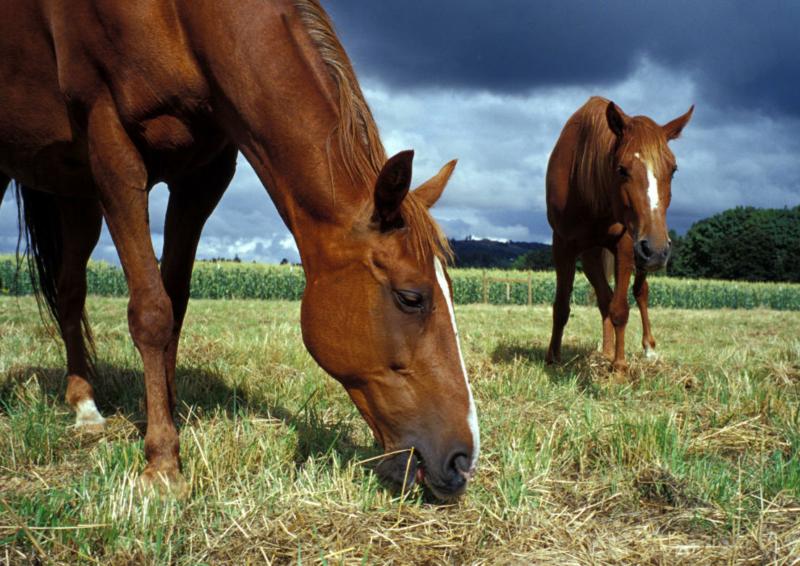Agri Innovations
Zoetis Introduces First Licensed Equine Leptospirosis Vaccine
Wed, 11 Nov 2015 12:34:33 CST

Zoetis announced the introduction of LEPTO EQ INNOVATOR®, the first and only vaccine licensed for use in horses, six months of age or older, to aid in the prevention of leptospirosis caused by Leptospira interrogans serovar Pomona, known as L. pomona. A recent study supported by Zoetis showed 75% of healthy horses have been exposed to at least one leptospiral serovar.1 As clinical signs associated with leptospirosis are non-specific, disease in horses likely occurs more frequently than is diagnosed, and exposure to Leptospira may be more prevalent than was previously understood.
"Until this vaccine, preventive options against leptospirosis have been limited in horses," said Jacquelin Boggs, DVM, MS, ACVIM, senior veterinarian, Equine Technical Services at Zoetis. "Leptospirosis is a disease that can cause devastating health risks to horses and can require costly treatment. In response to the equine industry's requests for a vaccine, Zoetis developed LEPTO EQ INNOVATOR to better equip veterinarians with the tools they need to help ensure the health and well-being of their horses."
The addition of LEPTO EQ INNOVATOR enriches the broad portfolio of core and risk-based equine vaccines from Zoetis. LEPTO EQ INNOVATOR was shown to be clinically safe for use in foals three months of age or older and healthy pregnant mares in the second trimester.2,3 The vaccine has been field tested in more than 1,800 horses.2,3 In field safety studies with the administration of 1,808 vaccine doses, 99.8% of the horses remained reaction-free.2,3 A reaction rate of 0.002% demonstrates the vaccine's safety.2,3
What is Equine Leptospirosis?
Equine leptospirosis is an infectious bacterial disease caused by spirochetes belonging to Leptospira species. Leptospira interrogans serovar Pomona, known as L. pomona, is the serovar most often associated with leptospirosis infections in horses in North America.4 L. pomona can colonize in the kidneys, be shed in the urine and cause horses to become septicemic.1 The bacteria is circulated in the blood and can cause uveitis, or moon blindness (the most common cause of blindness in horses), as well as abortions and kidney failure.*
Horses can become infected with leptospires from standing or slow-moving water contaminated by Leptospira-infected urine, contaminated soil, bedding, feed and drinking water as well as urine from infected cattle or dogs.4,5 Common maintenance hosts including skunks, raccoons, white-tailed deer and opossums can become infected with L. pomona, which can be shed into shared environments and infect horses. After penetrating through mucous membranes or skin abrasions, leptospires can concentrate in the kidneys and can cause devastating clinical disease.
WebReadyTM Powered by WireReady® NSI


















